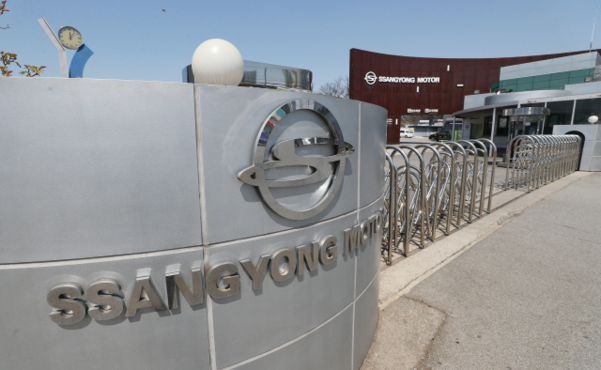Input 2020.12.28 14:01
Ssangyong Motor applied for the’Autonomous Restructuring Assistance’ (ARS) program to the court this month along with rehabilitation procedures. The court accepts this, and Ssangyong Motor has to show its willingness to normalize business for three months, but if the Pyeongtaek plant cannot be restarted within a short period due to a disruption in parts supply and demand, there is a high possibility of a vicious cycle that worsens Ssangyong’s management situation.

Hyundai Mobis and S&T Heavy Industries decided to resume delivery from the 29th through negotiations with Ssangyong Motor, but the remaining three have yet to decide to resume delivery. Ssangyong Motor said, “We are in consultation with companies that have refused to supply parts,” and “We will disclose the results of the negotiations as soon as they become available.” According to the industry, it is known that in addition to the three known names, some mid-sized suppliers are refusing to deliver.
Suppliers are demanding that the delivered goods be paid in cash first. This is because if Ssangyong Motor goes into court management in the future, there may be a problem with the recovery of funds. An official of the partner said, “Even when Ssangyong Motor entered the court administration in 2009, there is a precedent that the partners failed to recover funds,” he said. “From the perspective of the partner, there is no choice but to ask for safe cash for fear of the recurrence of the same thing.”
However, Ssangyong Motor is unable to pay cash to its suppliers right away. Instead, Ssangyong Motors emphasizes that business can be normalized only when the plant is restarted, and through this, it can coexist with its suppliers in the long term. According to the legal community, the Seoul Rehabilitation Court Rehabilitation Division 1 decided to accept the ARS program that Ssangyong Motors applied for with the court official on the 21st. The ARS program is a system in which the court delays the start of rehabilitation procedures for up to three months. Accordingly, by February 28, 2021, Ssangyong Motor will be free from the burden of repayment of principal and interest and can operate normally and discuss restructuring issues autonomously with major creditors.
Instead, Ssangyong Motor should find new investors by February 28, next year, when the ARS program ends. If the liquidity crisis is resolved through a new investor, the application for rehabilitation procedures can be withdrawn through an agreement with the creditors. It is reported that US automobile retailer HAAH and others are showing interest in the acquisition. On the other hand, if it fails to find a new investor or no agreement is reached, the rehabilitation process begins again.
Ssangyong Motor has to operate its Pyeongtaek plant in order to receive new investment. This is because you have to prove that it is worthwhile to keep a business going than to liquidate it. For this, cooperation with suppliers is urgent. An official from Ssangyong Motors explained, “We are appealing to our partners that business can be normalized once the negotiations to attract investment in the ARS period are completed.”
In the worst case, if Ssangyong Motor goes bankrupt, damage to Ssangyong Motor and its suppliers is inevitable. Accordingly, the government has initiated mediation, but discussions are not easy. On the 22nd, the Ministry of Trade, Industry and Energy discussed plans for cash payment of the delivery price through a meeting with business partners. An industry insider said, “The immediate normal operation of the Pyeongtaek plant following the resumption of delivery will be the first button in the normalization process of Ssangyong Motors.”
